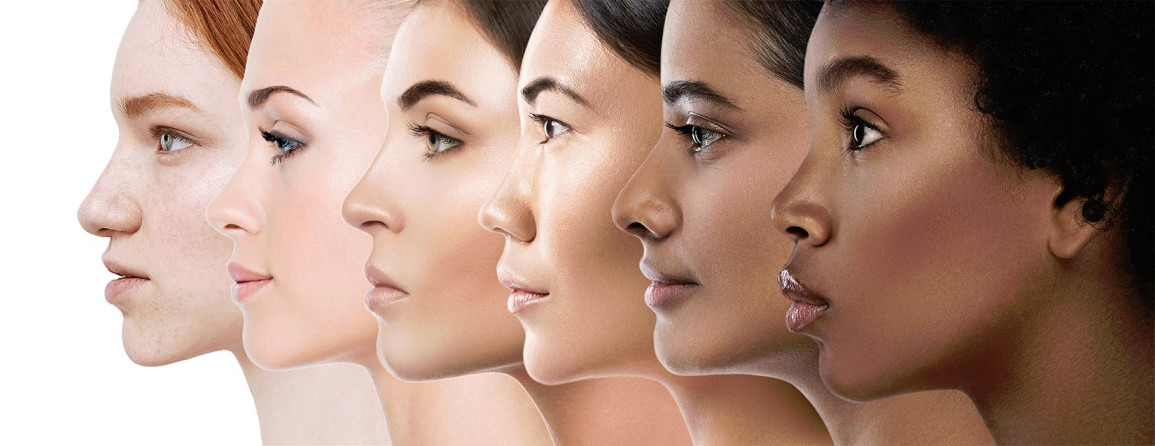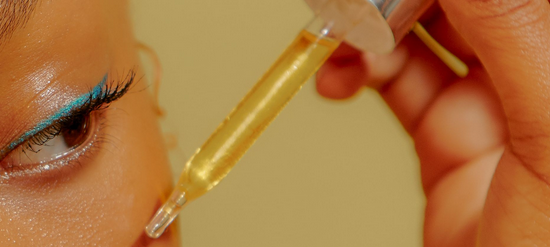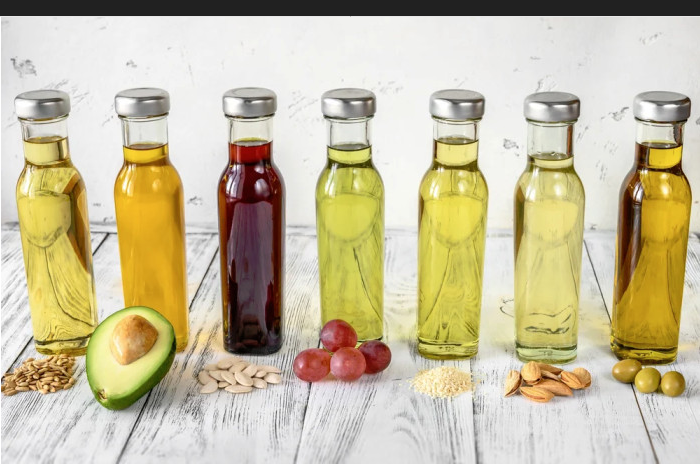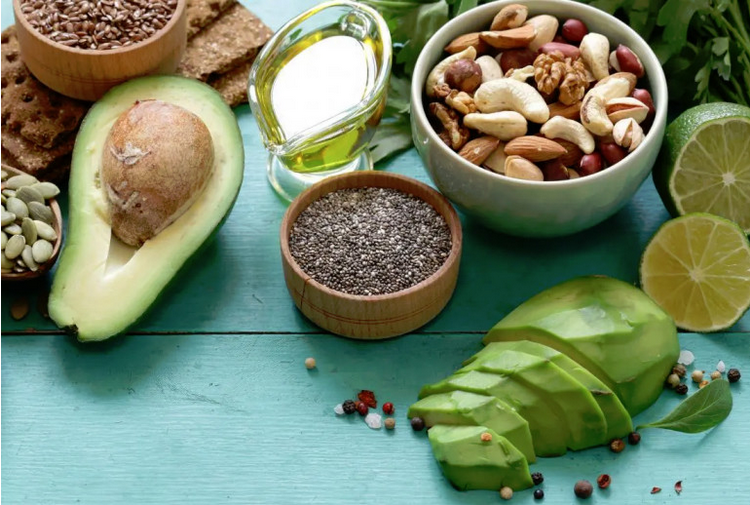Skincare is becoming increasingly important in today’s fast-paced world. Appropriate skincare techniques are required due to growing pollution and UV rays that could be harmful. Choosing the proper diet and nutrients can significantly improve the health of your skin, even though there are many skin care developments on the market. The health of your skin, which frequently serves as a barometer of your physical and mental health, depends on a balanced diet, which is crucial for keeping its health. The health and formation of your skin can be significantly affected by what you eat and drink.
Oil is crucial to excellent skin care because it feeds and protects the skin. The word “wellhealthorganic.com:diet-for-excellent-skin-care-oil-is-an-essential-ingredient” may have come up in your search. Oils are an important part of any skincare convention. It helps the active ingredients work and helps the skin absorb them. This post will tell you about “wellhealthorganic.com:diet-for-excellent-skin-care-oil-is-an-essential-ingredient.”
What advantages does ingesting oil provide for the health of the skin?
Eating oil has several advantages for skin health. Some of the advantages are:
- The oil keeps the skin hydrated. A lipid barrier keeps the skin’s cells from sticking together. By shielding the skin from the outside world, this barrier helps keep the skin moist. The skin can become dry, itchy, and cracked when the lipid barrier is broken. The lipid barrier can stay moist and in good shape by eating oil.
- The oil makes shielding the skin from the sun’s harmful UV rays possible. The sun’s UV rays can speed up aging, cause lines, and even cause skin cancer. Skin defense from the damaging UV rays of the sun can be aided by oil consumption.
- Oil is a natural pain reliever. After an accident, the body naturally heals itself by causing inflammation.
- But a rash that lasts for a long time can damage the skin and cause psoriasis, eczema, and acne. The skin’s health will improve with oil because it can help the body experience less inflammation.
- The oil keeps the skin looking young and healthy. By making wrinkles, fine lines, and age spots less noticeable, the oil helps keep the skin looking young and healthy.
Why is maintaining a balanced diet crucial for skin care?
Many people are unaware of the impact that a healthy diet can have on skin health. The general health of your body, especially your skin, is significantly impacted by your diet. Your diet affects the color, feel, and general health of your skin. Your risk of developing skin conditions like acne, eczema, and early aging can be reduced by a healthy diet.
What oils are ideal for maintaining healthy skin?
There are many kinds of oil that are good for the skin’s health. Some of the best oils for healthy skin are listed below:
Acai berry:
Argan oil contains abundant antioxidants and vitamin E, both of which can help in shielding the skin from damage. It also has plenty of fatty acids, which can support maintenance of healthy, hydrated skin.
Avocado oil:
Olive oil contains abundant antioxidants that can assist in shielding the skin from damage. It is also a good source of vitamin E, which is crucial for skin health.
Oil from coconut
Coconut oil and other natural moisturizers can help keep the skin moist. Lauric acid, which is good because it kills bugs and fungi, is also a good source.
Rosehip seed oil
Rosehip oil contains abundant antioxidants that can assist in shielding the skin from damage. It also has plenty of fatty acids, which can support maintenance of healthy, hydrated skin.
How does oil impact your skin’s general health?
Oils are a crucial part of healthy skin. However, they could be good or bad for the skin’s health in general. On the one hand, the oil might nourish and hydrate the skin by making a barrier that keeps wetness in. This makes wrinkles and fine lines less noticeable and supports the skin from getting dry and flaking.
Too many or incorrect methods can result in clogged pores, acne, and other skin problems. Therefore, choosing oils and using them appropriately based on your skin kind (such as oily, dry, or combination skin) is crucial. Also, some oils are more likely to oxidize than others, which can result in damage from free radicals and quick aging.
Overall, this oil is an important part of any skincare routine, but it should be used carefully and thought about how it will affect your skin problems. You can gradually achieve healthier, more vibrant skin by choosing and using high-quality oils suitable for your skin health needs and requirements.
What nutrients are necessary for having good skin?
To keep skin healthy, it needs a wide range of nutrients. These are made up of antioxidants, minerals, and vitamins.
C vitamin
Maintaining the skin’s elasticity and tightness, this is necessary to make collagen.
A vitamin
This vitamin is important for skin that looks good. It helps cells grow, gets rid of wrinkles, and heals damaged skin.
Zinc:
For good skin, you need to get a lot of this in your diet. The amount of oil that is made is controlled, and inflammation is reduced. Selenium is a mineral that acts as an antioxidant and saves the skin from damage caused by UV light.
E vitamin
As an antioxidant, this vitamin helps protect the skin from damage caused by free radicals.
Fatty acids with omega-3s:
These essential fatty acids help keep skin healthy and reduce irritation.
Water:
For maintaining healthy skin, drinking enough water is crucial..
What is a healthy diet for skin care?
The most crucial part of a well-balanced diet for healthy skin is including hydrating foods, such as nutrient-rich fruits and vegetables and other hydrating foods. They are an excellent source of vitamins and minerals, which assist in maintaining moisture in the skin and stop it from drying out and flaking. Maintaining your skin’s moisture is also essential.
Eating meals high in hydrating foods, antioxidants, and other nutrients will help prevent the skin from aging from free radicals. Fruits, vegetables, green plants, almonds, and dark chocolate are all good sources of antioxidants. Omega-3 fatty acid sources like fish and plants are essential for healthy skin. Omega-3 fatty acids help oil and moisture stay in the skin. It’s also crucial to limit processed foods high in sugar or refined carbohydrates.
How to consume oil for healthy skin?
There are many ways to use oil to keep your skin healthy. Oil can be applied directly to the skin or incorporated into a diet. Here are a few things to keep in mind:
- Salad dressings must contain oil. Your salad dressings may contain argan, coconut, or olive oil.
- Cooking requires oil. Suitable for cooking are argan, coconut, and olive oil.
- Put some oil on your skin. You can put coconut oil, argan oil, or olive oil on your skin directly.
Seven foods high in antioxidants for healthy skin
When early aging and skin problems are brought up, antioxidants are often mentioned. Fruits and vegetables frequently contain natural vitamin and mineral compounds known as antioxidants. A few things that affect how our skin looks are using sunscreen, being active, getting enough sleep, and following a good skincare routine. But did you know that eating foods high in antioxidants can also help you get clear, glowing skin? Vitamins A, C, and E should be consumed daily in sufficient amounts to achieve younger-looking and clearer skin. These vitamins keep skin cells healthy and help fix them.
Many people take antioxidant pills to get the amount of antioxidants they need each day. But if you know what foods to eat, you can do it on your own. Including these antioxidant-rich foods in your diet may help you avoid many skin problems and achieve the skin of your dreams. In this post, I’ll talk about seven tasty foods that are also high in antioxidants.
1. Tomato
Tomatoes are among the best foods for the skin that are high in antioxidants because they contain a lot of the vitamin lycopene. There is a reason why tomatoes are in so many skincare items and do-it-yourself skincare recipes. Four antioxidant-rich carotenoids found in tomatoes support skin cell renewal and UV defense. Tomatoes contain vitamins C and E, which are essential for healthy, young skin.
2. Blueberry
Blueberries, in addition to being juicy, sour, and delicious, are a gift from nature to humans because of their numerous health advantages. The most antioxidants are found in blueberries, which are often called “superfoods.” By including this food in your diet, which is high in antioxidants, you may be able to fight the first signs of aging, even out your skin tone, and reduce dark circles under your eyes.
3. Spinach
Palak paneer is more than just a dish that tastes good. Did you know that spinach is also rich in antioxidants? We’ve all seen Popeye get stronger after eating a can of spinach as kids. A cup of spinach contains about 4000 beta-carotenes, which have excellent skin anti-aging properties. Studies show that eating spinach and other leafy greens daily can help the body and mind relax and prevent skin problems caused by stress. If you want your skin to look younger, use this superfood. You can put it in soups or your morning smoothie.
4. Garlic
The aromatic herb garlic instantly improves salads, pasta dishes, and everything else. It is abundant in antioxidants like vitamin C and selenium. It can help the skin heal faster and keep it from getting hurt by the surroundings. Garlic’s antibacterial properties also assist in treating and preventing inflammation associated with acne. Researchers have found that people who eat garlic have fewer skin problems. Add garlic to salads and lentil soup to make them taste better and get your daily amount of antioxidants.
5. A green tea
When it comes to antioxidants, green tea is the first thing that any expert will recommend. In addition to helping you lose weight, green tea is good for your skin. This ingredient is used in a lot of skincare items because it makes people feel calm and relaxed. By stopping the breakdown of collagen, the catechin antioxidants in green tea protect the skin’s barrier. Also, drinking two cups of green tea every day can help the skin heal faster. Once you’re done drinking the tea, put the tea bags in the fridge and use them to close your eyes. You can get rid of dark circles and puffy eyes by putting cold green tea bags on them.
6. Watermelon
In the summer, nothing beats a dish of watermelon. Watermelon is a food that has a lot of water and lycopene, which helps the body make collagen and fight free radicals. It also guards against sunburn and other damage from the sun. Your skin can look younger and have fewer sun spots by eating watermelon, which is rich in vitamins A, C, B, and potassium.
7. A deep chocolate
Dark chocolate has vitamins C and E, which help make skin more elastic and slow the aging process. It has flavonols, which are known to help reduce skin inflammation and redness caused by dry skin and acne. This antioxidant-rich food can help the skin keep water by soothing dry, rough skin and avoiding damage from free radicals.
We now know how important antioxidants are for our health and the health of our skin, as well as which foods are the best ways to get them. But there is still one thing to talk about: the problem. Diet for dark spots on the face and dark spots on the face.
The Best Oil for Your Skin Type: How to Choose

Combined Skin:
People with combination skin can benefit from using different oils on different parts of their faces. Use jojoba oil on your T-zone and almond oil on your face, for example.
Dry skin:
If your skin is dry, choose oils that deeply hydrate it, like coconut oil, olive oil, or avocado oil.
Skin Sensitivity:
For sensitive skin, choose gentle oils that calm inflammation, such as chamomile or marigold oil.
Greasy skin:
People with thick skin should use oils that won’t clog their pores. Rosehip oil, grapeseed oil, and jojoba oil are some of the choices.
Conclusion
Wellhealthorganic.com:diet-for-excellent-skin-care-oil-is-an-essential-ingredient: To have great skin care, you need to make healthy lifestyle choices and use effective skincare products. By eating a healthy diet and using essential oils in your skincare routine, you can nourish and protect your skin from the inside out. Align your skincare routine with your overall skin health goals.
Before putting an oil on your skin, do a patch test to make sure you won’t have a bad reaction. Remember that using too much oil can block your pores and cause breakouts.





